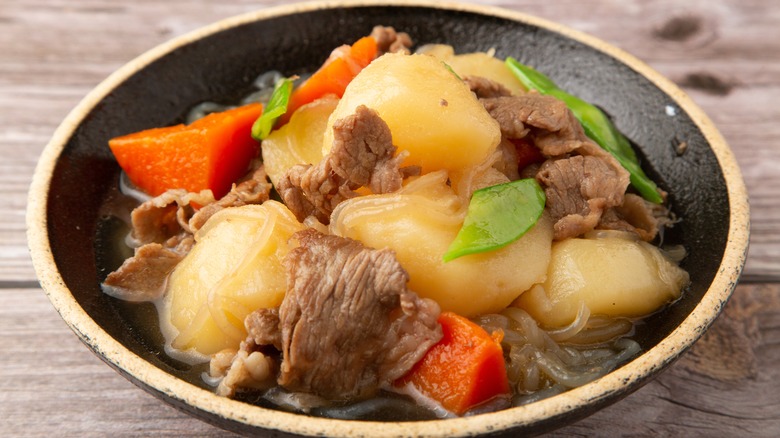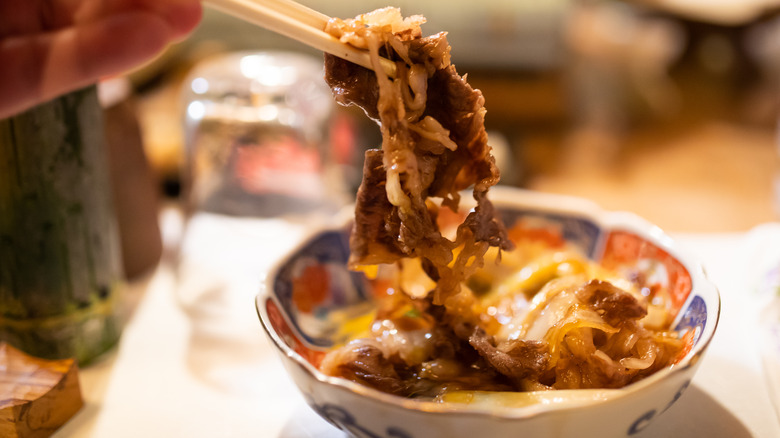Nikujaga: The Japanese Beef Stew With A Rich History
If beef stew doesn't sound like Japanese food to you, we're here to change that by illuminating one of the less well-known traditions of the Japanese kitchen: dishes that come from Western dietary influence. As in most cultural foodways, the food of Japan has changed and adapted over time as connections to foreign countries and their signature recipes have been made. Even sushi, the most iconic of all Japanese foods, has morphed over its long history from its true origin as a way to preserve fish into the fresh, raw presentation of today.
In the mid-19th century, the Meiji period opened Japan to more extensive contact with the outside world, including bringing new, unfamiliar foods and cooking techniques to the country and its chefs. The Japanese navy was in a unique place to experience this cultural shift as it navigated the globe, which is why it is credited with some iconic fusion foods like Japanese curry and the lesser-known recipe for nikujaga, Japanese beef stew.
Homestyle simmered beef is comfort food
Historians tell us that Japan's admiral Tōgō Heihachirō requested that his cooks replicate the beef stew that he'd eaten during his years studying in England. The cooks had not experienced the dish, so they created their own simmered version with all the main components — potatoes, onions, carrots, and beef — and also included traditional Japanese ingredients like dashi stock and soy sauce. Beef was scarce, so the cooks used thin slices rather than meaty chunks, resulting in a highly flavorful dish that is uniquely Japanese in style. The name of the dish reflects the two main ingredients, niku for meat, and jaga, which is short for jagaimo, for potatoes.
During this time, the new Meiji Emperor promoted eating beef as a way to strengthen the population. So, although beef was not a well-known ingredient in mostly vegetarian Japan, dishes like nikujaga and the simmered hot-pot dish known as sukiyaki, which combined familiar flavors and meat, became accepted by home cooks. Today, nikujaga represents comfort food at its best, combining warm bowls of nourishment with savory memories of home.

